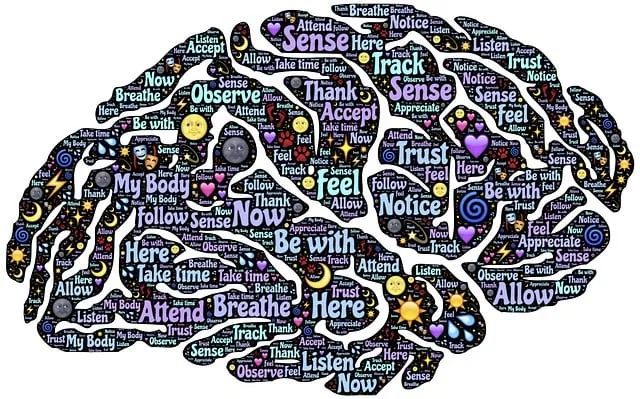The Kaiser Permanente Mental Health Center Lafayette adopts a holistic approach, prioritizing positive thinking exercises as a powerful tool for mental wellness. By identifying and challenging negative thought patterns, individuals gain control over their emotional well-being through cognitive-behavioral therapies and mindfulness practices. The center offers resources like journaling guidance and conflict resolution techniques, promoting user engagement and community mental health awareness. Integrating daily positive thinking routines, such as gratitude journaling and stress management workshops, enables better stress reduction and improved communication. Their tracking and celebration of progress, both quantitatively and qualitatively, ensures tailored support services and reduces stigma in the community, solidifying Kaiser Permanente Lafayette's reputation as a champion for mental health.
At the Kaiser Permanente Mental Health Center Lafayette, positive thinking exercises have emerged as a powerful tool for enhancing well-being. This article delves into the science behind positive thinking and its benefits, offering practical strategies for implementation. We explore identifying negative thought patterns, designing effective exercises, integrating positivity into daily life, and measuring progress. By following these insights, individuals can harness the power of positive thinking to cultivate resilience and improve mental health, much like Kaiser Permanente’s comprehensive approach.
- Understanding Positive Thinking and Its Benefits at Kaiser Permanente Mental Health Center Lafayette
- Identifying Negative Thought Patterns: A Key Step in the Exercise Implementation
- Designing Effective Positive Thinking Exercises for Optimal Impact
- Integrating Positive Thinking into Daily Routines: Strategies and Tips for Success
- Measuring Progress and Celebrating Successes: Tracking Positive Changes at Kaiser Permanente
Understanding Positive Thinking and Its Benefits at Kaiser Permanente Mental Health Center Lafayette

At Kaiser Permanente Mental Health Center Lafayette, positive thinking exercises are integral to fostering mental well-being. These practices aim to shift individuals’ perspectives, encouraging a more optimistic and resilient mindset. By understanding that thoughts directly influence emotions and behaviors, the center empowers patients to challenge negative thought patterns and replace them with positive alternatives. This approach, backed by extensive research, has been shown to significantly reduce stress levels and promote healthier coping mechanisms.
The Kaiser Permanente mental health center Lafayette recognizes the broader benefits of positive thinking, not only for individual patients but also for the community at large. As part of their comprehensive services, they offer various programs, including community outreach initiatives and trauma support services, that incorporate these exercises. These initiatives aim to create a network of support, educating and empowering individuals to take charge of their mental health and lead more fulfilling lives.
Identifying Negative Thought Patterns: A Key Step in the Exercise Implementation

Identifying Negative Thought Patterns is a crucial step in implementing any positive thinking exercise. Many people are unaware of the recurring negative thoughts that can significantly impact their emotional well-being. The Kaiser Permanente mental health center in Lafayette offers valuable insights and resources to help individuals recognize these patterns. By understanding common cognitive distortions, such as all-or-nothing thinking or catastrophizing, one can begin to challenge and reframe these thoughts. This process is often a catalyst for personal growth and improved mental resilience.
This initial step is vital because it empowers individuals to take control of their mental health. At the Kaiser Permanente Lafayette location, professionals emphasize that acknowledging and identifying negative thought patterns is not about suppression but rather transformation. Through various techniques, including mindfulness practices and cognitive-behavioral therapies, patients are equipped with tools to manage and replace these thoughts with more positive, realistic perspectives. This shift can lead to better stress reduction methods, enhanced emotional intelligence, and improved communication strategies in daily life.
Designing Effective Positive Thinking Exercises for Optimal Impact

Designing Effective Positive Thinking Exercises for Optimal Impact at the Kaiser Permanente mental health center Lafayette begins with understanding the target audience’s needs and preferences. Mental Health Awareness initiatives should be tailored to cater to diverse individuals, considering their unique backgrounds and experiences. Incorporating user-friendly Mental Wellness Journaling Exercise Guidance can significantly enhance engagement, allowing folks to reflect on their thoughts and emotions in a structured yet personal way.
For instance, exercises could include prompts like identifying daily successes or practicing gratitude. Additionally, integrating Conflict Resolution Techniques into these activities can empower individuals to navigate challenging situations with positivity and resilience. By combining reflective journaling with practical coping strategies, the Kaiser Permanente mental health center Lafayette can offer comprehensive solutions that resonate deeply with participants, fostering a culture of mental wellness within the community.
Integrating Positive Thinking into Daily Routines: Strategies and Tips for Success

Integrating positive thinking into daily routines is a powerful tool for enhancing mental well-being, as advocated by Kaiser Permanente mental health center Lafayette. It involves cultivating a mindset that focuses on optimism and gratitude, which can significantly impact overall happiness and resilience. One effective strategy to begin this journey is by setting aside dedicated time each day for practice. This could be in the form of quiet reflection or journaling, where individuals write down three things they are grateful for and reflect on positive experiences.
The key to success lies in consistency and making it a non-negotiable part of your routine. Simple practices like this can be incorporated into existing daily habits, such as commuting or exercising. Additionally, engaging in regular communication strategies with peers and family, as promoted by Stress Management Workshops Organization, can foster positive connections and support systems, further reinforcing these optimistic thoughts. Burnout prevention techniques, which emphasize self-care and setting boundaries, also play a crucial role in maintaining this mental health practice over time.
Measuring Progress and Celebrating Successes: Tracking Positive Changes at Kaiser Permanente

At Kaiser Permanente mental health center Lafayette, measuring progress and celebrating successes are integral parts of their positive thinking exercise implementation. They utilize various tools to track improvements in patient well-being, focusing on both tangible and intangible outcomes. This includes self-reported surveys that gauge changes in mood, stress levels, and overall life satisfaction, alongside clinical assessments conducted by seasoned professionals. By combining these metrics, the center can identify specific areas of growth and tailor their support services accordingly, such as enhancing Trauma Support Services or integrating Mindfulness Meditation into public awareness campaigns for broader community engagement.
The celebration of successes goes beyond individual patient stories. Kaiser Permanente Lafayette shares these positive narratives to foster public awareness campaigns about mental health development, reducing stigma, and encouraging others to embrace positive thinking exercises. This collective effort not only strengthens the center’s reputation but also contributes to a more supportive and understanding society, where individuals are empowered to take charge of their mental well-being.
Implementing positive thinking exercises, as demonstrated by Kaiser Permanente Mental Health Center Lafayette’s programs, can significantly improve mental well-being. By identifying and challenging negative thought patterns, individuals can transform their perspectives and foster a more optimistic outlook. Through tailored exercises and integration into daily routines, these strategies offer practical tools for enhancing resilience and overall happiness. As seen in the successful tracking of progress at Kaiser Permanente, consistent practice leads to measurable positive changes, making these techniques valuable resources for anyone seeking improved mental health and life satisfaction.






